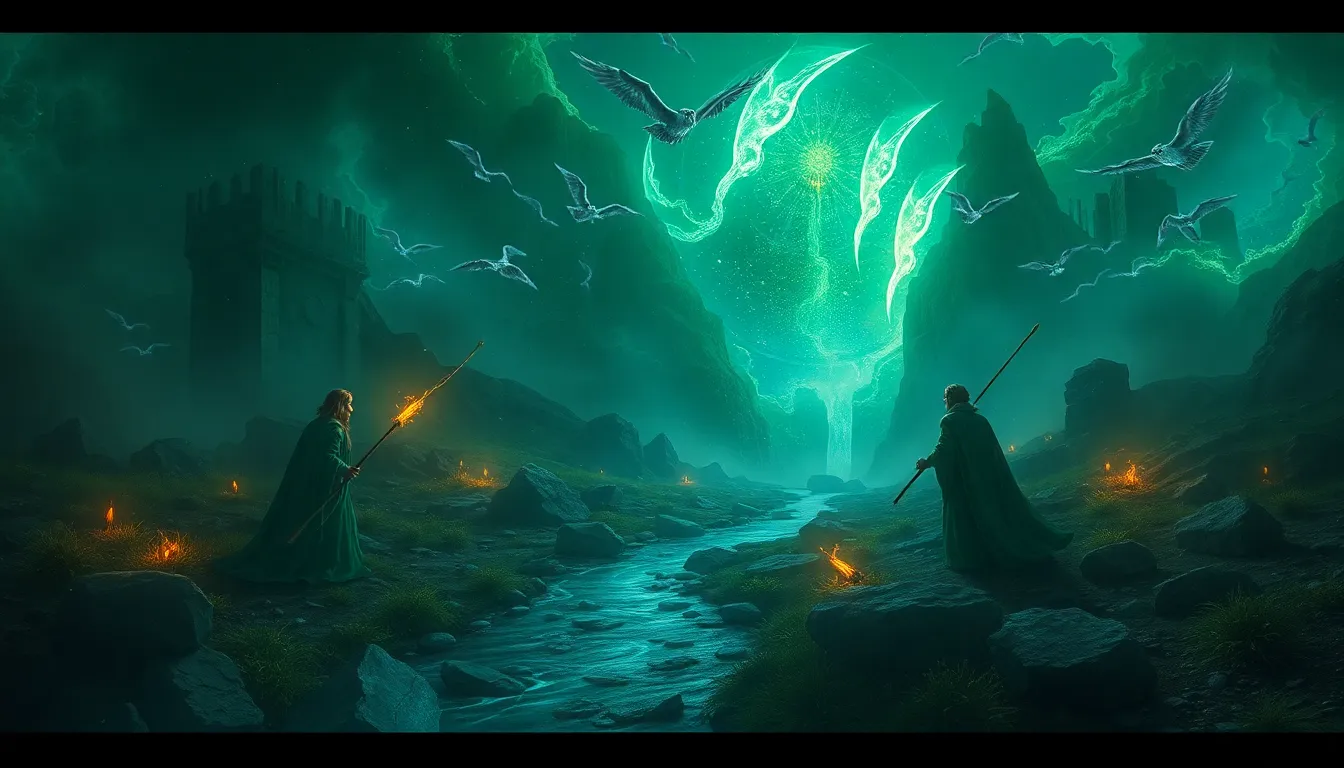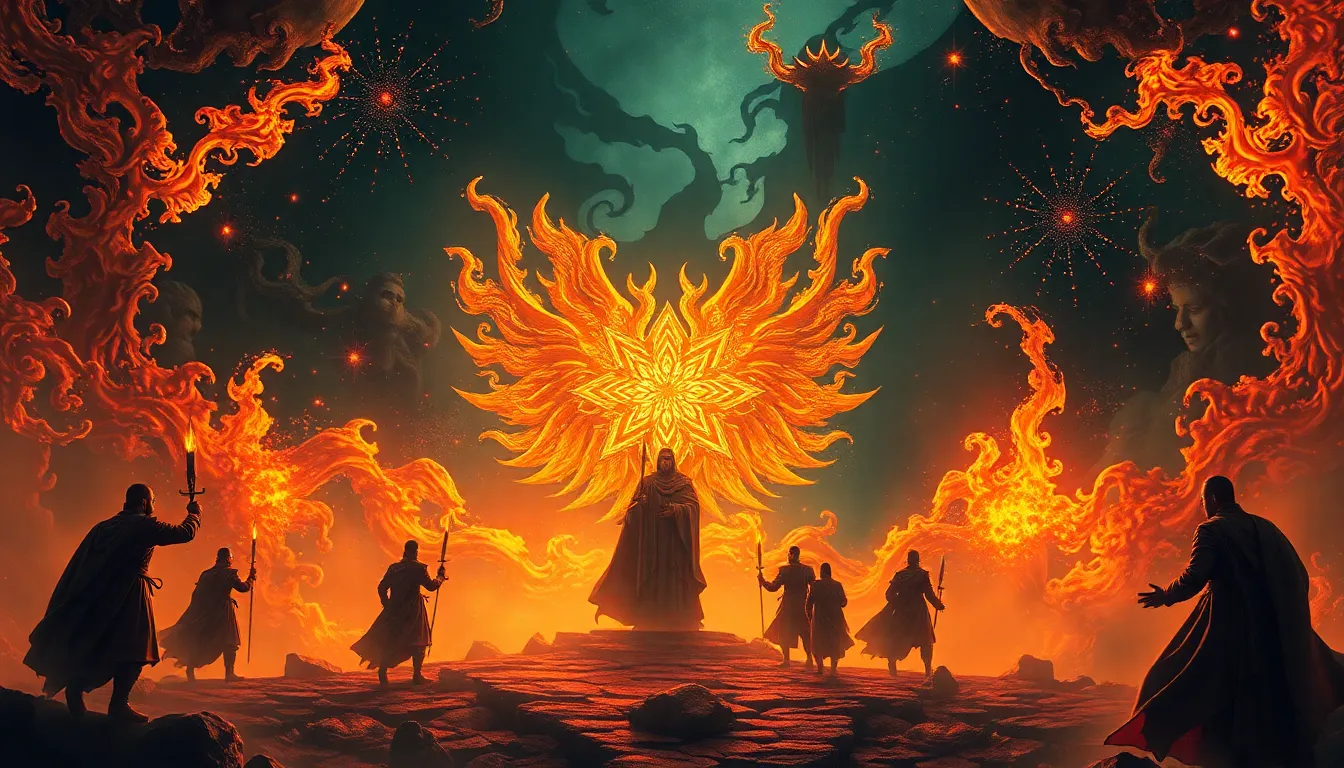Exploring the Rich Tapestry of African Mythology
I. Introduction:
African mythology is a vast and captivating realm of oral traditions, beliefs, and legends. It forms an integral part of the vibrant cultural heritage of Africa, offering profound insights into the history, values, and worldview of the continent's diverse peoples. Mythology plays a pivotal role in shaping African identities, providing narratives that connect the present to the past and the human to the divine.
II. Origins and Creation Myths:
At the heart of African mythology lie the compelling tales that explain the origins of the world and humanity. These folktales and legends vary widely across different cultures, yet common themes and motifs emerge. Many narratives depict a supreme creator deity, often associated with the sky or the sun, who brings forth the universe through a divine act of creation. Other stories center on the transformation of primordial beings or the emergence of life from chaos.
III. Deities and Spirits:
The African mythological landscape is inhabited by a rich pantheon of deities and spirits. Gods and goddesses, each with specific domains and powers, oversee the various aspects of human existence. They are invoked in rituals and prayers, seeking their favor or guidance. Alongside these celestial beings, African mythology also recognizes a multitude of nature spirits, ancestors, and trickster figures. These entities play vital roles in the lives of humans, interacting with them in dreams, visions, and everyday experiences.
IV. Heroes and Legends:
African mythology abounds with captivating stories of heroes and legends who embody the values and aspirations of their communities. These epic tales narrate the extraordinary quests and adventures of brave warriors, wise sages, and cunning tricksters. Through their exploits, heroes symbolize the human capacity for courage, resilience, and ingenuity. Their legends inspire generations, serving as moral compasses and reminders of the indomitable spirit of the African people.
V. Animals and Symbolism:
Animals occupy a central place in African mythology, often carrying symbolic meanings and embodying specific qualities. Lions represent strength and kingship, while serpents symbolize wisdom and transformation. The chameleon is associated with adaptability, and the hare with cunning. These animals appear in countless stories, fables, and proverbs, embodying the interconnectedness between humans and the natural world.
VI. Oral Traditions and Storytelling:
In Africa, mythology is woven into the very fabric of daily life, transmitted through generations via oral traditions and storytelling. Griots, renowned storytellers and historians, play a pivotal role in preserving and sharing these tales. They possess an extraordinary ability to memorize and recount complex narratives, captivating audiences with their eloquence and artistry. Storytelling forms the bedrock of community identity and education, entertaining, informing, and reinforcing moral values.
VII. Mythology and Rituals:
African myths are not mere stories; they serve as a foundation for cultural practices and rituals. Many rituals are deeply rooted in mythological beliefs and narratives. Traditional ceremonies and festivals reenact mythical events or honor specific deities, strengthening the bond between the human and divine realms. Rituals provide a collective space for communities to connect with their heritage, reinforce societal norms, and seek divine guidance and protection.
VIII. Cultural Influences:
African mythology has had a profound influence on other cultures around the world. Through cross-cultural interactions, African myths and legends have traveled far and wide, leaving their mark on global folklore. The influence is particularly evident in the African diaspora, where many myths and stories continue to resonate and inspire communities. African mythology has also found expression in art, literature, music, and other cultural domains, contributing to a rich and vibrant tapestry of human expression.
IX. Contemporary Perspectives:
In contemporary Africa, mythology remains a living and dynamic tradition. Modern interpretations and retellings of African myths offer fresh perspectives and relevance in an evolving cultural landscape. Artists, writers, and filmmakers draw inspiration from these ancient tales to explore contemporary themes, address social issues, and celebrate African identity. Mythology continues to serve as a source of inspiration and guidance for societies grappling with the complexities of the present day.
X. Conclusion:
The rich tapestry of African mythology is an invaluable heritage, providing a window into the beliefs, traditions, and values of the African people. Through its captivating tales and enduring characters, African mythology offers insights into the human condition and the deep interconnectedness of humanity with the natural and divine worlds. Its contemporary relevance and ongoing influence demonstrate the enduring power of these stories to shape African identities and inspire generations.
FAQs:
**1. What makes African mythology unique?**
African mythology is notable for its diversity, reflecting the vast array of cultures and traditions that exist across the African continent. Each region possesses unique mythologies and beliefs that are deeply rooted in their own historical and environmental contexts.
2. What is the significance of animals in African mythology?
Animals play a significant role in African mythology, often symbolizing specific qualities or embodying the forces of nature. They serve as guides, messengers, or tricksters, adding richness and complexity to the tales and underscoring the interconnectedness between humans and the animal kingdom.
3. How does mythology shape African cultural practices?
African mythology is not simply a collection of stories; it is deeply interwoven with cultural practices and rituals. Many traditional ceremonies, festivals, and social customs find their origins in mythological beliefs. These rituals serve to reinforce societal values, foster a sense of community, and connect individuals with the past and the divine.
4. Is African mythology still relevant today?
Absolutely. African mythology remains a vital and evolving tradition that continues to influence contemporary art, literature, music, and film. Modern interpretations of these ancient tales offer new insights and perspectives, addressing current issues and celebrating African identities in the present day.
5. How can I learn more about African mythology?
There are various ways to explore African mythology:
- Consult reliable books or articles written by scholars or researchers
- Engage with reputable websites and online resources dedicated to African mythology
- Seek opportunities to attend cultural events or festivals that showcase African traditions
- Connect with African storytellers, griots, or elders who can share their knowledge and perspectives



